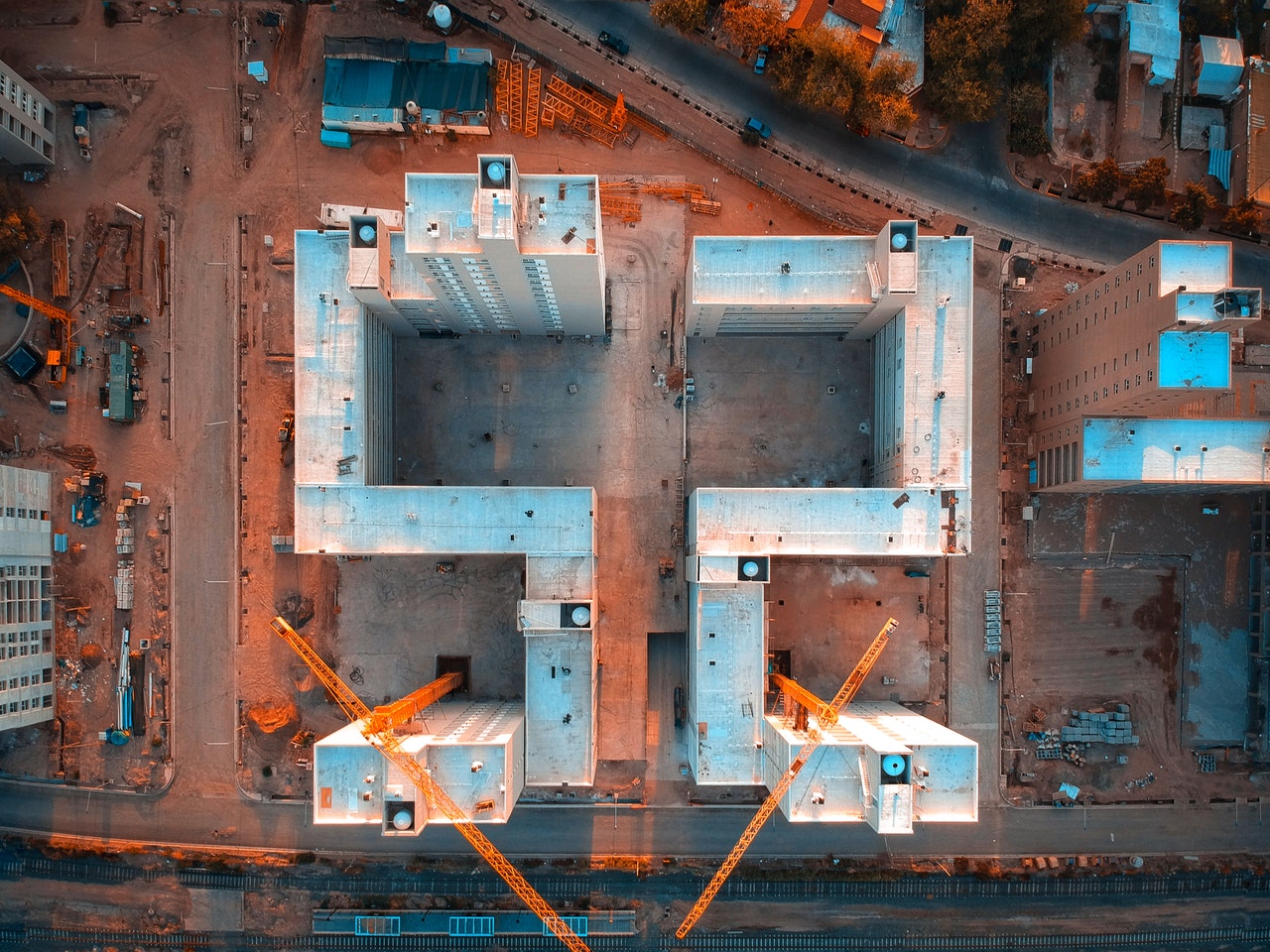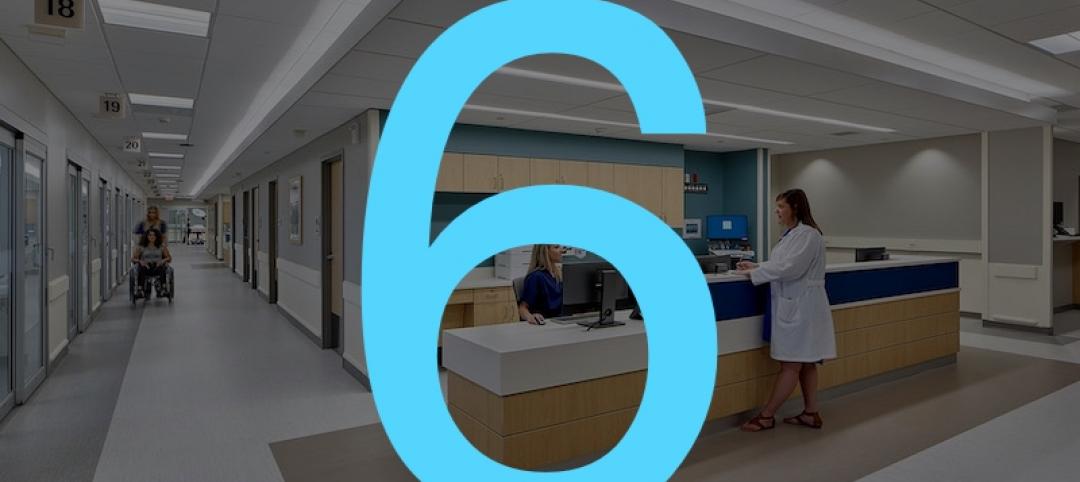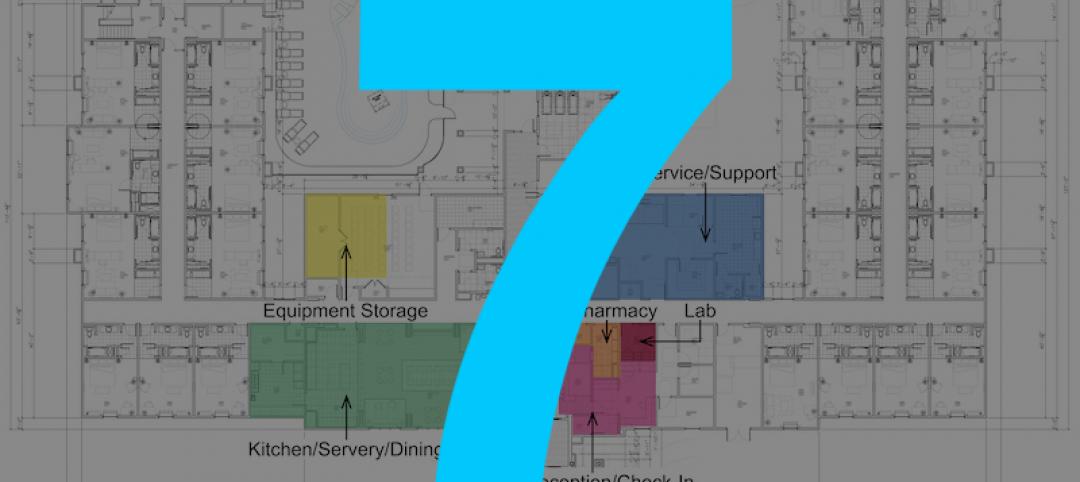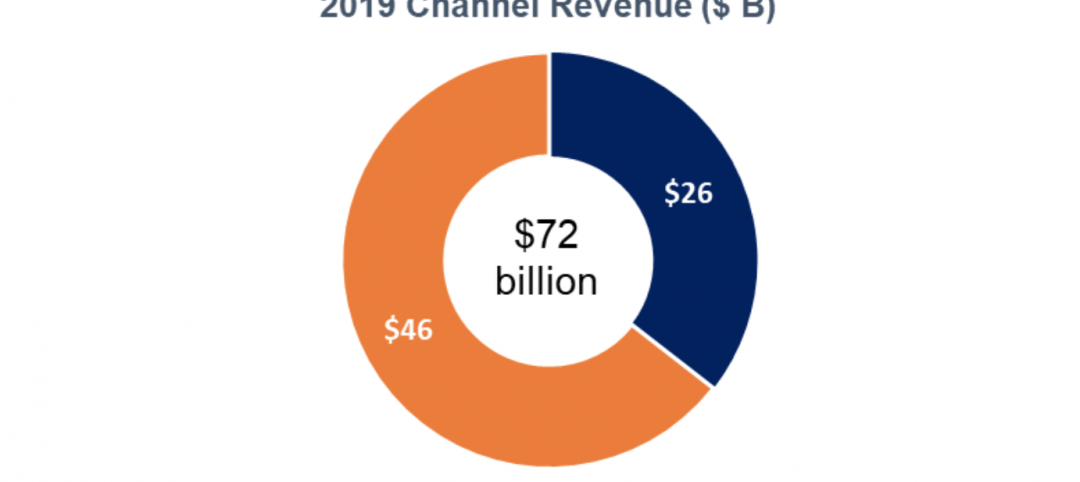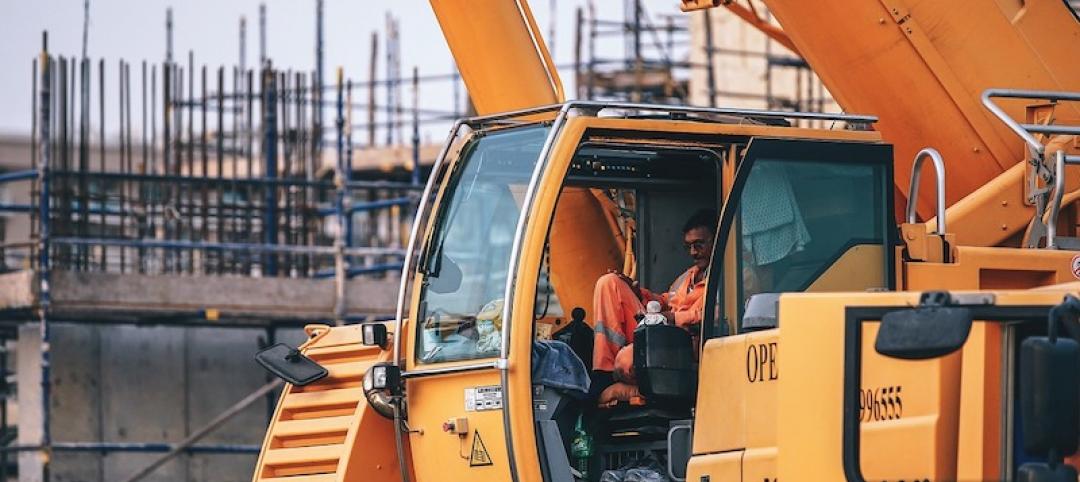Slowing demand at architecture firms last year is expected to contribute to a projected 5.7% decline in construction spending for 2021, according to a new consensus forecast from The American Institute of Architects (AIA).
The AIA Consensus Construction Forecast Panel—comprised of leading economic forecasters—expects steep declines this year in construction spending on office buildings, hotels, and amusement and recreation centers. Health care and public safety are the only major sectors that are slated to produce gains in 2021.
Growth in nonresidential construction is expected for 2022, with 3% gains projected for the overall building market matched by both the commercial and institutional sectors.
“The December jobs report confirmed that the economy needs additional support in order to move to a sustainable economic expansion,” said AIA Chief Economist Kermit Baker, Hon. AIA, PhD. “As pandemic concerns begin to wane and economic activity begins to pick up later in 2021, there is likely to be considerable pent-up demand for nonresidential space, leading to anticipated growth in construction spending in 2022.”
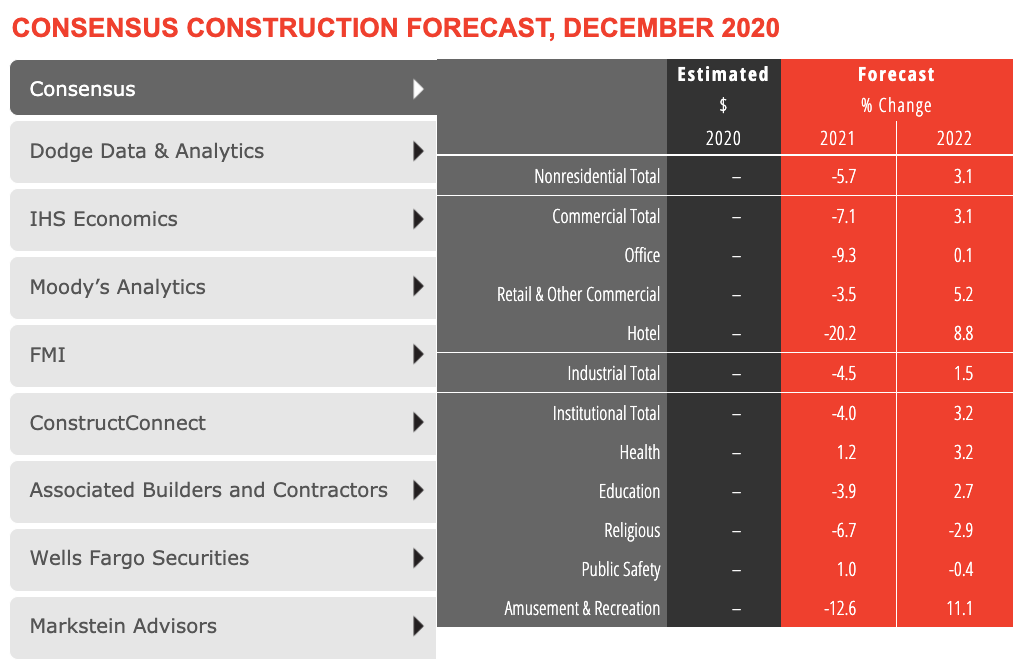
CLICK CHART TO LAUNCH INTERACTIVE CHART FROM AIA
Here are some takeaways from AIA's Chief Economist Kermit Baker, Hon. AIA:
• Hotel, airlines, and recreation industry jobs have been decimated by the pandemic. "The December jobs report confirmed that the economy needs additional support in order to move to a sustainable economic expansion. Of particular concern were the 500,000 payroll positions lost in the leisure and hospitality sector. That means that this sector has lost almost 25% of payroll positions since February 2020, matching losses in the airline industry."
• The $900 billion stimulus package passed in December 2020 is not nearly enough to sustain economic growth. "Key elements of this package include another $600 in direct payments to qualifying individuals, $300 per week in supplemental unemployment insurance for up to 11 weeks, and $280 billion designated for the Paycheck Protection Program, which provided incentives for small businesses to keep employees on their payrolls. These initiatives were generally very effective in providing a safety net for impacted households and small businesses last spring. However, they weren’t designed to provide sufficient support for an extended period of economic weakness, and the December jobs report suggests that we may already be heading into another down cycle. Even this additional funding is unlikely to provide sufficient financial support for economic growth through the entire vaccination period, suggesting that even more stimulus will be needed in the coming months or else our economy likely will be in for an extended period of stagnant growth or modest declines."
• Biden win bodes well for infrastructure investment. "With the two Georgia senate seats now in the democratic column, there are a new set of policy options for the Biden administration. Still, given the razor thin margins in both the House and the Senate, programs likely to be enacted will need to have at least modest levels of bipartisan support. An infrastructure program is likely near the top of the list of programs that both parties could support, and the Biden Administration seems ready to make this a priority, in part because it would be viewed as a stimulus program, but also because borrowing costs are near historical lows."
• Architecture firms are seeing more positive signs for the long-term. "Project inquiries from prospective and former clients have been strong recently, suggesting that new work may be picking up. More concretely, new design work coming into architecture firms has generally been more positive than billings in recent months, suggesting that firms are bringing in more project activity than they are completing. However, firms are seeing different business conditions regionally. Firms in the northeast saw the steepest downturns as the pandemic hit, and conditions remained the weakest for the remainder of the year. Business conditions at firms in the other three regions – all modestly declining – are fairly comparable."
Related Stories
Market Data | Apr 9, 2020
7 must reads for the AEC industry today: April 9, 2020
Urine could be the key to building in outer space and how to turn a high school into a patient care center in just over two weeks.
Market Data | Apr 8, 2020
6 must reads for the AEC industry today: April 8, 2020
Stantec discusses how hospitals can adapt buildings to address worst-case scenarios and FXCollaborative Architects tells us why cities will survive the pandemic.
Market Data | Apr 7, 2020
7 must reads for the AEC industry today: April 7, 2020
Leo A Daly's Hotel2Hospital prototype takes shape, while the number of delayed projects reaches 2,550 in the U.S. amid coronavirus pandemic.
Market Data | Apr 3, 2020
COVID-19 cuts nonresidential construction employment in March
The construction unemployment rate was 6.9% in March, up 1.7 percentage points from the same time one year ago.
Market Data | Apr 1, 2020
February’s construction spending decline indicates what’s to come
Private nonresidential spending declined 2% on a monthly basis and is down 0.7% compared to February 2019.
Market Data | Mar 26, 2020
Architects taking action to support COVID-19 response
New AIA task force will offer insights for adapting buildings into healthcare facilities.
Market Data | Mar 26, 2020
Senate coronavirus relief bill's tax and lending provisions will help construction firms, but industry needs additional measures
Construction officials say measure will help firms cope with immediate cash flow crunch, but industry needs compensation for losses.
Market Data | Mar 25, 2020
Engineering and construction materials prices fall for first time in 40 months on coronavirus impacts, IHS Markit says
Survey respondents reported falling prices for five out of the 12 components within the materials and equipment sub-index.
Market Data | Mar 23, 2020
Coronavirus will reshape UAE construction
The impact of the virus has been felt in the UAE, where precautionary measures have been implemented to combat the spread of the virus through social distancing.


